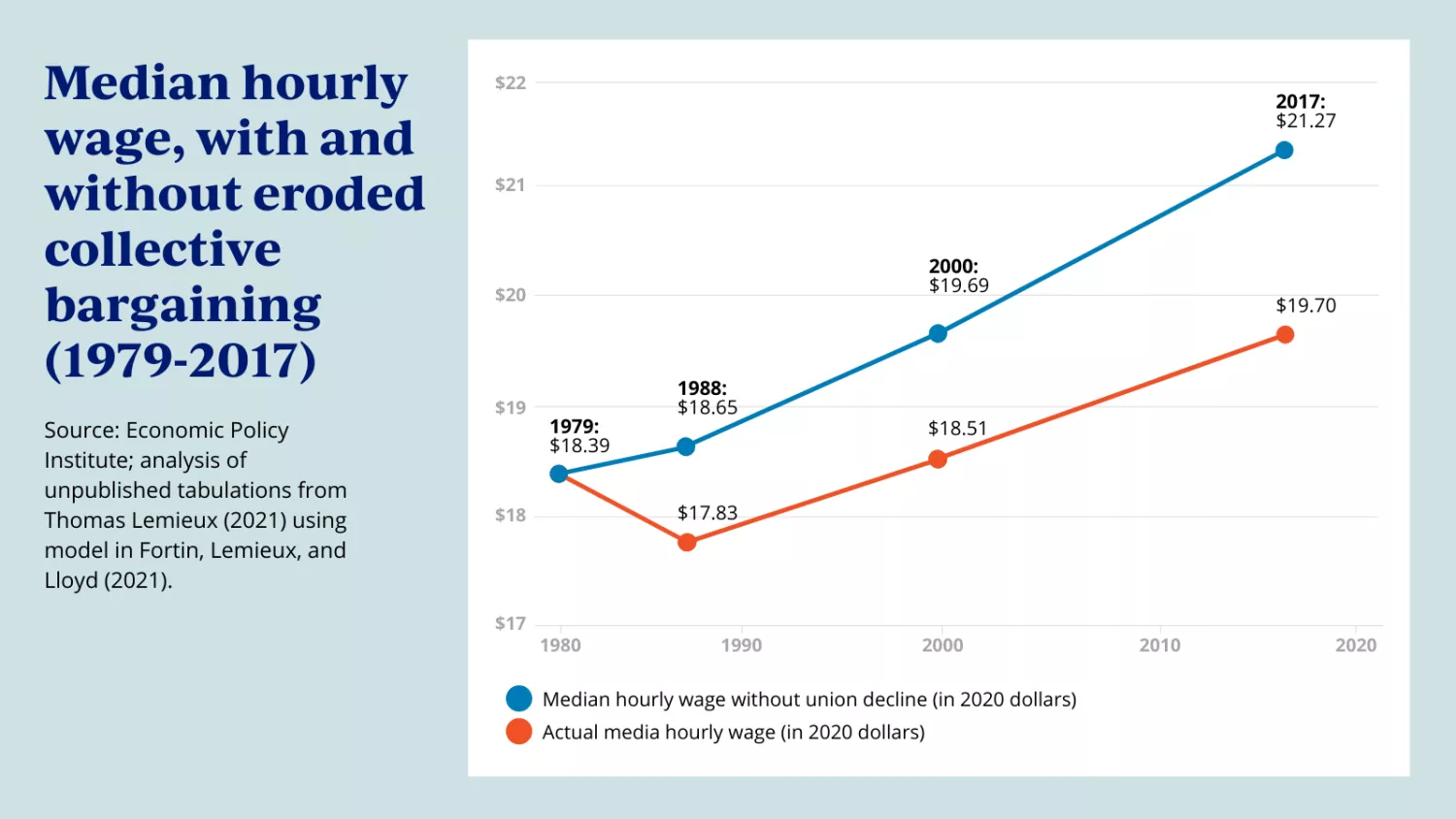Collective bargaining allows educators not only to negotiate their own wages and benefits, but to advocate for their students and communities. NEA locals have used the bargaining process to reduce class sizes, rethink discipline policies, and establish community schools, for example.
When collective bargaining is widespread, it benefits the greater good in another crucial way. Researchers have long known of the “spillover effect,” in which collective bargaining drives up wages and shrinks the pay gap among nonunion workers as well.
A new report from the Economic Policy Institute (EPI) shows that the erosion of collective bargaining—through deliberate policy decisions that favor the wealthy and corporations—has been a major factor in depressing wages and driving wage inequality for 40 years.

The report shows that as the share of workers covered by collective bargaining agreements fell from 27 percent in 1979 to 11.6 percent in 2019, the median hourly wage was stunted by nearly 8 percent.
The study makes a forceful case for restoring broad collective bargaining rights in order to:
- grow workers’ wages,
- reduce the wage gap, and
- help all workers and families prosper.
“Rebuilding collective bargaining is a necessary component of any policy agenda to reestablish robust wage growth for the vast majority of workers in the United States,” said EPI’s Lawrence Mishel, the report’s author.
“Unions disproportionately benefit workers with low and moderate wages, workers with lower levels of education, and Black and Brown workers. Collective bargaining not only benefits union workers, but nonunion workers as well by raising wage standards across industries,” said Mishel.
NEA believes all public education employees deserve the right to negotiate a fair contract.
Educators helped elect President Joe Biden in part because of his unwavering support for expanding collective bargaining rights and protecting workers’ right to organize.
Suggested Further Reading
Use Your Educator Voice.

